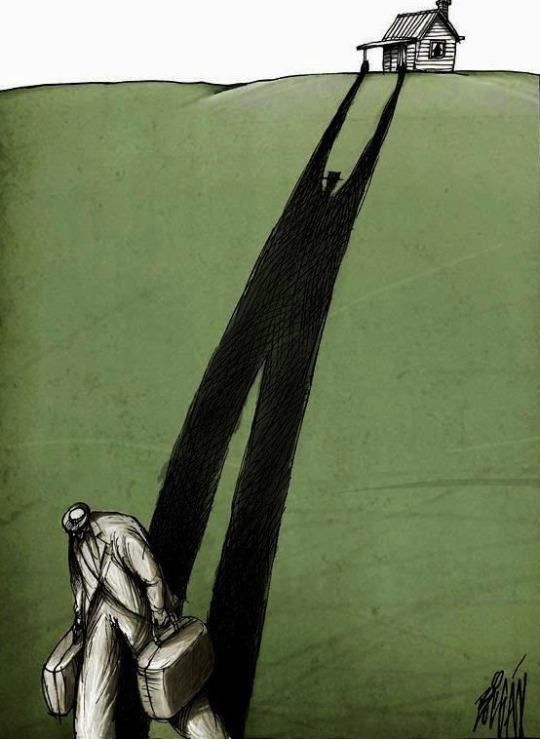Pozdrav i ovaj put jedan tekst na bosanskom jeziku.
Nedavno sam na predavanju na svom fakultetu čuo od profesora jednu interesantnu rečenicu. Kao što sam naslov ovog teksta sugeriše ta rečenica je “Zbogom Bosno, odoh ja u Sarajevo”. Profesor tog predmeta je govorio u kontekstu ratnih dešavanja u Sarajevu 90-tih godina prošlog stoljeća i o tome kako je Sarajevo predstavlja drugi svijet u odnosu na ostatak Bosne i Hercegovine.
Kada prvi put čujete ovakvu rečenicu, može se slobodno reći da zvuči pretenciozno i da dolazi iz usta jednog umišljenog sarajlije. Sarajlije znaju biti umišljenje, ali gledajući političke, ekonomske i kulturne faktore u to vrijeme a i sada, možemo reći da ova rečenica ima istine u sebi. Sarajevo je za vrijeme Jugoslavije bilo jedno od regionalnih centara na Balkanu, posebno kada je u pitanju kultura. Takvo je stanje i sada, kada Sarajevo ima svoj film festival i još mnoge kulturne događaje. Većina studenata iz daljih i siromašnijih krajeva Bosne i Hercegovine dolaze na Univerzitet u Sarajevo, kako bi stekli obrazovanje, diplomu i eventualno bolje šanse za posao ( koji također žele naći u Sarajevu). Politički gledajući, sve bitnije političke institucije su u Sarajevu. Ekonomski gledano, najbolji životni standard u BiH je u Sarajevu, zajedno sa najvećim platama, što dokazuje da je Sarajevo, uz Zagreb i Beograd, jedan od skupljih gradova u regionu. Tu bi sliku dobili kada bi vidjeli izbor kafića, restorana, trgovačkih kuća i noćnog života.( zato je retorika nekih političara koje Sarajevo prozivaju kao “džamahiriju” itd. bez ikakvih dokaza i praktično pada u vodu). Pored toga, da ste turista i da razgledate Sarajevo prvi put u svom životu, pomislili bi da Bosna i Hercegovina “cvjeta” i da je ekonomija u stalnom rastu. Bili bi iznenađeni nasmijanim ljudima, otvorenošću, sadržajem i opuštenim načinom života kojim se živi u Sarajevu (poznato ispijanje kafa po čitav dan odnosno “čejfovanje” ili “merak”). Zadivila bi vas i atmosfera za vrijeme Ramazana, koju bi teško mogao opisati, osim da taj period Sarajevu daje neku magiju i nešto specijalno što se osjeti u zraku. Naravno, ovo je ona lijepa strana Sarajeva, kao i svaki drugi grad, bio on metropola ili ne, ima svoju lošu stranu, o kojoj ću pisati drugom prilikom. Na drugoj strani, kada odete van Sarajeva i posjetite druge dijelove Bosne i Hercegovine, slika se drastično mijenja. Tada vidite zapuštena naselja, lošu infrastrukturu, zapuštene ljude, borbu za preživljavanje, ukratko loš životni standard. Ovo se desilo zbog faktora kao što su rat i činjenica da se najviše novca ulaže u Sarajevo, dok manje općine tako ostaju uskraćene. Tu se već dobija totalno suprotna slika i stvorite mišljenje da su ljudi u Bosni i Hercegovini zatvoreni, veoma konzervativni, pesimistični i da želje za životom nemaju. Ima tu par svijetlih i dobrih primjera kako su se neke općine digle iz toga, i tako je npr. najuspješnija ekonomska općina u Bosni i Hercegovini, općina Tešanj, koja ima samo 50 000 stanovnika. Zbog takve ekonomske situacije, nema potrebe da vas iznenade stavovi i razmišljanja tih ljudi, koji su izrazito ksenofobični i nacionalistički. Za te ljude ne postoji neka vizija i vjera u bolju budućnost.
Nema dileme da je Sarajevo kao grad nešto posebno. On predstavlja dragulj Bosne i Hercegovine, ali gledati kao da predstavlja realno stanje u Bosni i Hercegovini je veoma naivno i opasno. Vođenje politike u kojem jedan grad i njegovo stanovništvo ima veće privilegije, bez obzira na stanje u kojem se nalaze ljudi u drugim dijelovima Bosne i Hercegovine, je opasno jer stvara veće razdore između ljudi i ekonomski disbalans. Na političkoj strani, to ponovo otvara priču o stvaranju “fildžan države” što je možda najopasnija i najdestruktivnija ideja koja može postojati. Zato treba prestati misliti da je Bosna i Hercegovina od Ilidže do Baščaršije, nego da je ona i puno dalje od toga, i da tim mjestima treba također pomoći da se izgrade.




